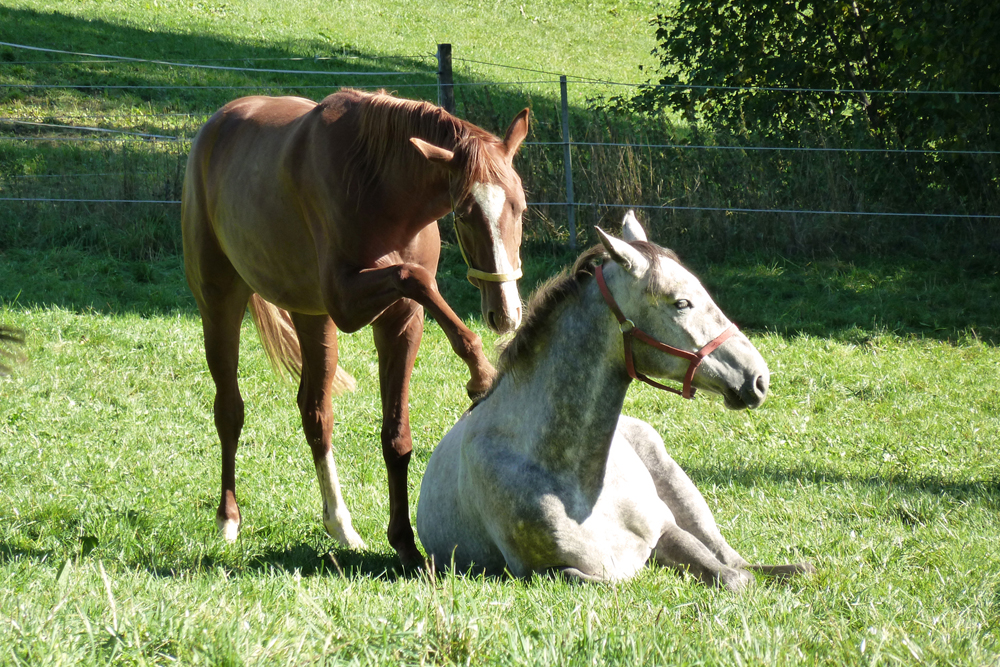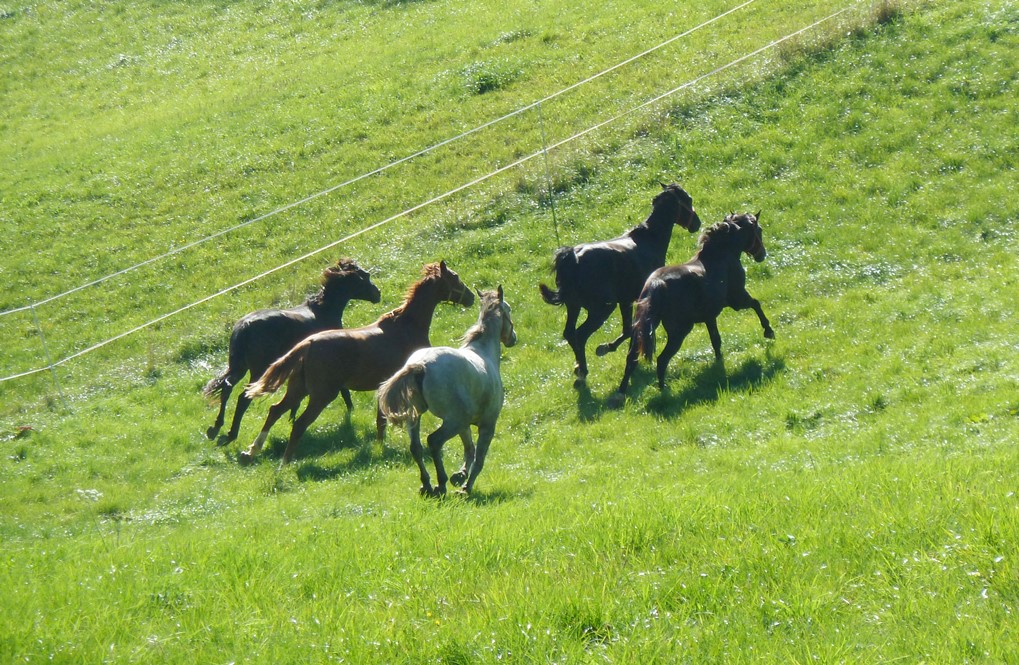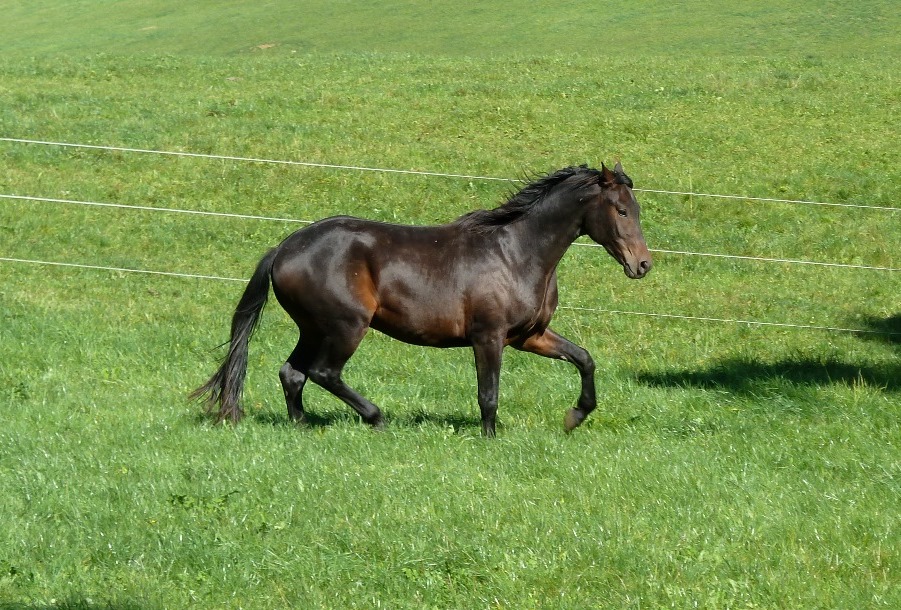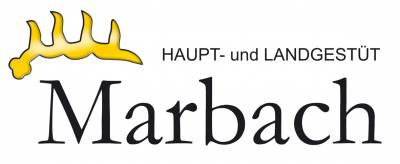Project
Sensory laterality, stress hormones and immunoglobulin A in horses (Equus caballus)
 Stress does not only have impact on welfare of humans and animals, but also influences their psychical and physical health. This occurs due to changes of physiological and immunological parameters, which can be determined non-invasively only partly. Blood samples are necessary especially for the evaluation of stress effects on immune system that is another stress factor for animals due to the blood collection. Therefore the aim of this study is to establish non-invasive parameters to evaluate the individual stress level resulting from inappropriate housing and/or training conditions as well as a possible genetically determined stress sensitivity.
Stress does not only have impact on welfare of humans and animals, but also influences their psychical and physical health. This occurs due to changes of physiological and immunological parameters, which can be determined non-invasively only partly. Blood samples are necessary especially for the evaluation of stress effects on immune system that is another stress factor for animals due to the blood collection. Therefore the aim of this study is to establish non-invasive parameters to evaluate the individual stress level resulting from inappropriate housing and/or training conditions as well as a possible genetically determined stress sensitivity.
 These include the sensory laterality (preferred use of the left or right sensory organs) and the immunoglobulin A (antibody which can be determined from feces), that provides information about the local immune defense of the gastrointestinal tract. Especially long-term or chronical stress affects the secretion of immunoglobulin A that may predispose horses for different gastrointestinal disorders. The parameters that have to be established will be determined together with already well established parameters (stress hormones from saliva and feces). This will be accomplished with a practical orientation by creating typical potential stressful situations for horses. This includes stress due to housing conditions (change of housing conditions), social stress in group housing and stress due to training.
These include the sensory laterality (preferred use of the left or right sensory organs) and the immunoglobulin A (antibody which can be determined from feces), that provides information about the local immune defense of the gastrointestinal tract. Especially long-term or chronical stress affects the secretion of immunoglobulin A that may predispose horses for different gastrointestinal disorders. The parameters that have to be established will be determined together with already well established parameters (stress hormones from saliva and feces). This will be accomplished with a practical orientation by creating typical potential stressful situations for horses. This includes stress due to housing conditions (change of housing conditions), social stress in group housing and stress due to training.
Personality and stress sensitivity of young horses
 The study aims to establish an objective personality test and to evaluate the stress sensitivity of young horses under normal housing conditions as well as before and after initial training. Selective breeding of less stress sensitive horses would contribute to an enhanced well-being of horses. It would improve their performance, ensure safer handling and facilitate daily handling. For this purpose an objective evaluation of the personality is needed. Knowledge about the personality and individual character of a horse allows horse keepers/equestrians to find standards for keeping and training, which do not restrict the nature and individuality of the horse. On this basis the horses could be supported to find inner serenity, self-awareness and confidence, which are presuppositions for suppleness and sustained willingness to perform (FN 2005, FN2014). The classical “training scale” for horses is based on rhythm and suppleness, which are mutually dependent like all the other steps from the “training scale”. To find the rhythm and to move in balance under the rider the physical suppleness is needed. But it will not work without the psychical suppleness, because only a mentally relaxed horse is able to move supple in rhythm and balance, that is the basis of the classical “training scale” (FN2014). Therefore not only a correct anatomy, but also an appropriate character of the horse facilitates the rider and horse to reach this basis, which shows that an objective evaluation of the personality matters. By means of a personality-test different personality traits of a horse can be evaluated.
The study aims to establish an objective personality test and to evaluate the stress sensitivity of young horses under normal housing conditions as well as before and after initial training. Selective breeding of less stress sensitive horses would contribute to an enhanced well-being of horses. It would improve their performance, ensure safer handling and facilitate daily handling. For this purpose an objective evaluation of the personality is needed. Knowledge about the personality and individual character of a horse allows horse keepers/equestrians to find standards for keeping and training, which do not restrict the nature and individuality of the horse. On this basis the horses could be supported to find inner serenity, self-awareness and confidence, which are presuppositions for suppleness and sustained willingness to perform (FN 2005, FN2014). The classical “training scale” for horses is based on rhythm and suppleness, which are mutually dependent like all the other steps from the “training scale”. To find the rhythm and to move in balance under the rider the physical suppleness is needed. But it will not work without the psychical suppleness, because only a mentally relaxed horse is able to move supple in rhythm and balance, that is the basis of the classical “training scale” (FN2014). Therefore not only a correct anatomy, but also an appropriate character of the horse facilitates the rider and horse to reach this basis, which shows that an objective evaluation of the personality matters. By means of a personality-test different personality traits of a horse can be evaluated.
According to current researches the measurement of sensory laterality can provide more insight into the personality, like e.g. stress sensitivity (Rogers 2010, Deesing and Grandin 2014). Thus this study aims to establish a personality-test for horses with integration of the evaluation of sensory laterality, which is easy to implement for professional breeders and trainers as well as for leisure riders by using simple tools. Furthermore it could facilitate the horse marketing for different disciplines/divisions, the individual choice of a suitable training method and it would improve the breeding selection in terms of breeding less stress sensitive horses.
funded by:


cooperation partners:






